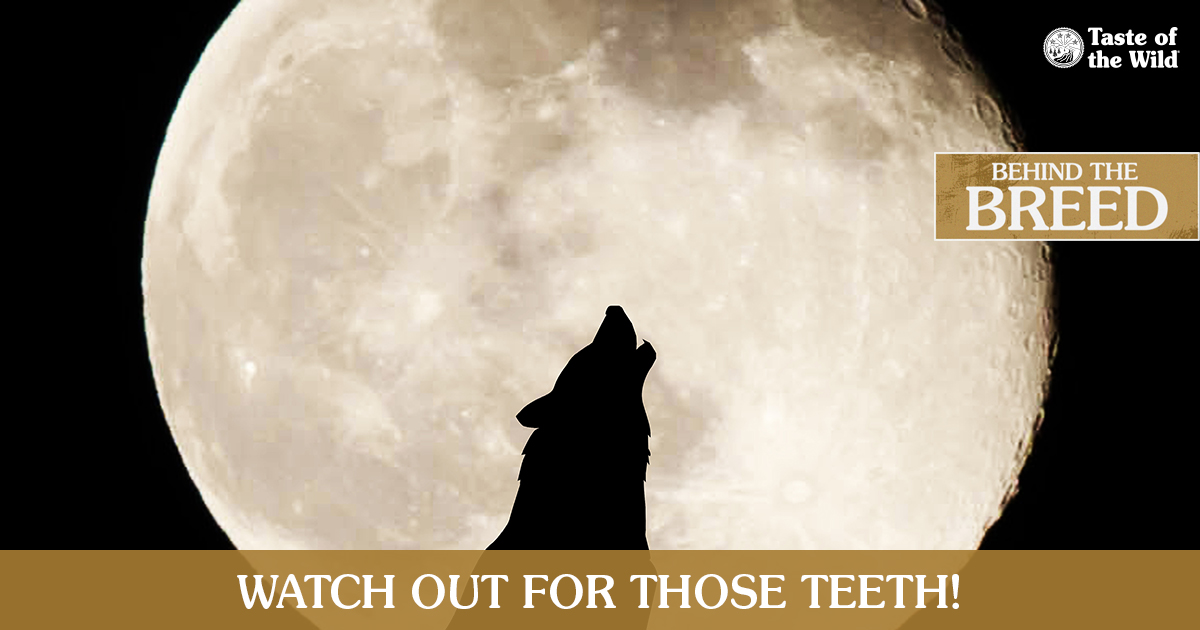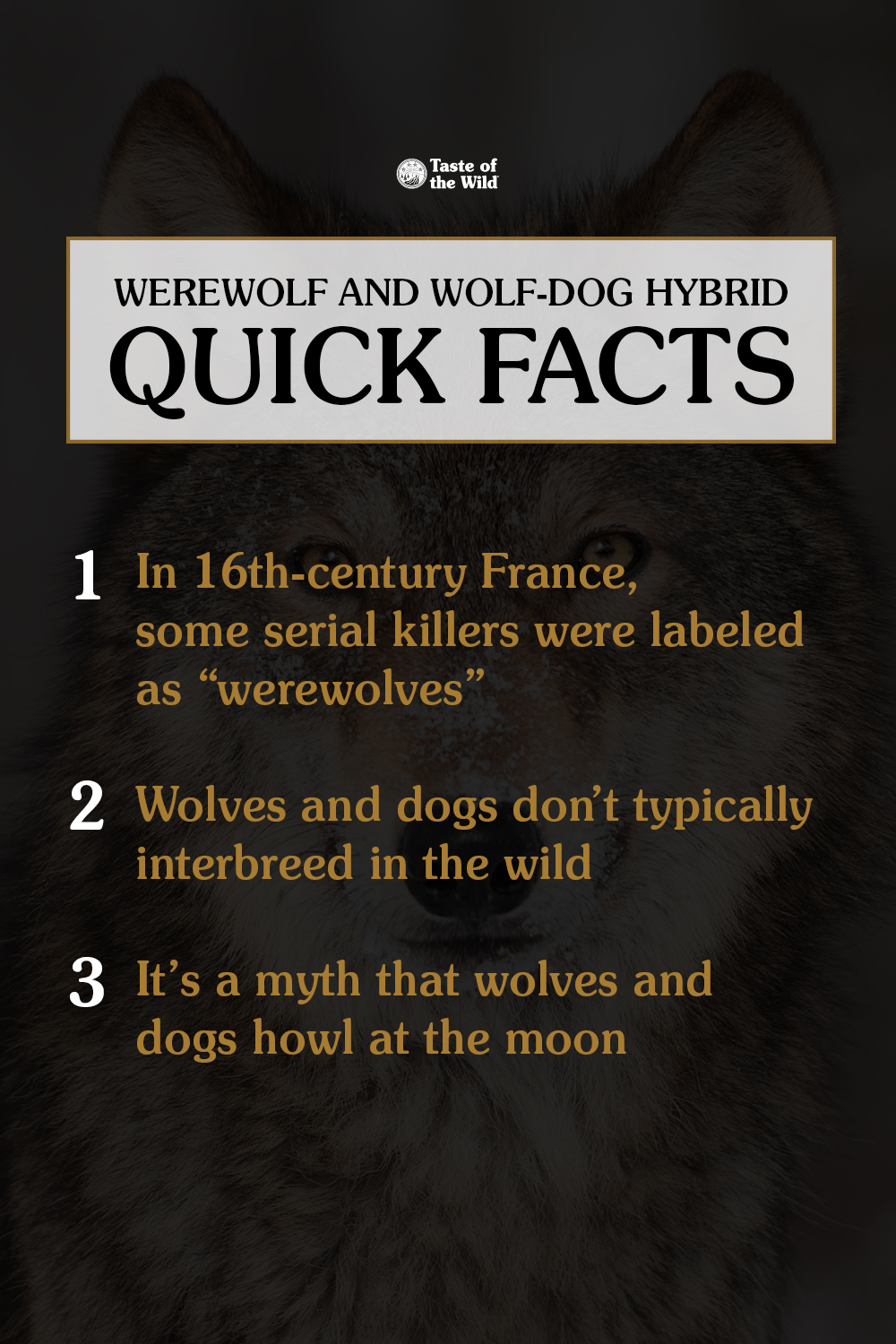
You’re walking alone on a mossy path in a dark, overgrown forest. Up ahead in a clearing, a human figure appears in the moonlight. You take a step closer and… wait, did they just shapeshift into a wolf? Is that a… werewolf?!
OK, so werewolves aren’t real (right?) and they aren’t a dog breed. But we thought we’d expand our realm a little for this Behind the Breed edition by looking “Behind the Werewolf” to learn where and when werewolf folklore began. We’ll also delve into a real wolf hybrid. Read on — if you dare.
Werewolf Lore: The Ancient Origins of Werewolves
Werewolves are not a modern-day creation of horror movie scriptwriters. Descriptions of werewolf-like creatures have been around for thousands of years, including in the “The Epic of Gilgamesh,” one of the oldest written works known to exist. According to History.com, Gilgamesh rejects a potential suiter because she turned her previous mate into a wolf.
History.com editors tell us that humans turning into wolves also occurs in early Nordic folklore and Greek mythology. In the “Saga of the Volsungs,” a father and son become wolves by wearing wolf pelts, and in Greek mythology, an angered Zeus turns Lycaon and his sons into wolves. Lycaon comes from the Greek word lykos meaning wolf, as does the other name for a werewolf — lycanthrope (meaning wolf-man).
So where could these ideas of werewolves have come from? One theory is that rabies may have inspired werewolf folklore because a bite from a rabid canine can cause infected humans to become aggressive and animal-like in their behavior. People have been aware of rabies for at least 4,000 years — so it’s possible that this ancient disease inspired werewolf lore.
Wolf-Dog Hybrids Do Exist
A hybrid of a wolf and a human may not exist, but what about a wolf and a dog? Yep, those are real. Wolves (Canis lupus) and dogs (Canis lupus familiaris) are different species, but they are able to interbreed. According to the International Wolf Center, wolf-dog hybrids are different from wolfdogs who are not always a hybrid but usually a domestic dog with a relatively recent wolf ancestry.
Wolves and dogs are genetically very similar — they share more than 99 percent of their DNA. However, the International Wolf Center points out that the genetic differences they do have, due to selective breeding of dogs over thousands of years, have led to distinct behavioral, life cycle and physiological differences between the two species.
There is no way to predict which wolf vs. dog traits a hybrid will have, which makes owning a hybrid as a pet a controversial issue. The International Wolf Center advises that as well as possible legal issues with owning a hybrid (depending on the laws in your state, county or city), rabies vaccines are not approved for hybrids and wolf-dog hybrids can have very different physical and psychological needs compared to a domestic dog.
Dogs That Look Like Wolves
If you love how wolves look but want to avoid the potential problems that owning a wolf-dog hybrid can bring, why not adopt a domestic dog that looks like a wolf? The American Kennel Club lists these ten dog breeds as having wolf-like features. The Czechoslovakian vlcak (or Czechoslovakian wolfdog) has the closest resemblance to a wolf. The breed originated in the 1950s by breeding a German shepherd with a Carpathian wolf. Meeting one of these dogs in the forest would be a much better scenario than meeting a werewolf — or a wolf!
- Alaskan klee kai
- Alaskan malamute
- Czechoslovakian vlcak
- Finnish lapphund
- German shepherd
- Norwegian elkhound
- Samoyed
- Siberian husky
- Swedish vallhund
- Yakutian laika

RELATED POST: Dogs at Work: Samoyeds Kept the Cold and Wolves at Bay
The information in this blog has been developed with our veterinarian and is designed to help educate pet parents. If you have questions or concerns about your pet's health or nutrition, please talk with your veterinarian.
